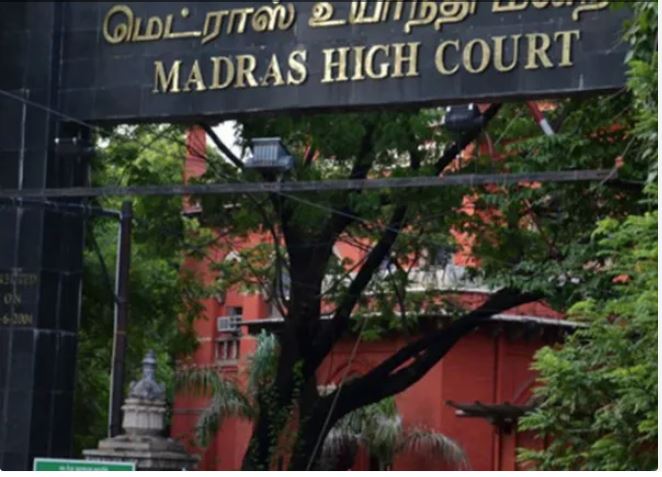The Madras High Court has dismissed a Public Interest Litigation (PIL) challenging the tender floated by the Chief Engineer by a petitioner who claimed to be a politician rendering service to society.
The petitioner was the councillor of Ward 6 of Mettur Municipality elected in the local body election held in 2011 as an All India Anna Dravida Munnetra Kazhagam (AIADMK) candidate.
The petitioner has challenged the tender notice dated 25.07.2022 mainly in regard to the condition of Earnest Money Deposit (EMD) which is said to be more than 1% of the total value of the work as it is in violation of Rule 14 of the Tamil Nadu Transparency in Tenders Rules 2000 . Though the petitioner is not a participant in the tender, he claimed to be espousing the cause of the public as the tender condition may affect the public exchequer and the petitioner being a public spirited person, has filed the petition.
T. Sai Krishnan, the counsel for the petitioner, submitted that the petitioner has gathered the details of the value of work done by each of the contractors who are carrying out the works and has furnished the same in the typed set of papers. The annual value of the work to be undertaken would be approximately Rs 14.5 crore and 1% of the annual value comes to Rs 14.54 lakh approximately, whereas the EMD quantified by the respondents seeks Rs 3.99 crore and thus not only does it violate Rule 14 of the Rules but it would also require public exchequer and therefore the public interest litigation has been initiated to challenge tender conditions. The last date for submission of tender/bid was 30.08.2022. The writ petition has been filed on 02.09.2022 immediately after the last date for submission of the bids.
R. Shunmugasundaram, Advocate General appearing for the State and P. Wilson, Senior Counsel appearing for Tamil Nadu Generation and Distribution Corporation Limited (TANGEDCO), submitted that the public interest litigation is politically motivated in the hands of the councillor of a political party and it does not involve any public interest. The averments made by the petitioner based on the information from the contractors cannot be said to be authentic so as to represent the total quantity of the work annually as otherwise the duration of the tender is for five years. The condition of EMD under challenge does not affect the tender process and the petitioner has failed to show as to how the public exchequer could be affected other than to make a statement for it.
The Counsel for the respondents further submitted that the Court may not cause interference in the tender at the instance of the person who is not involved in the tender process, rather is a political person and the petitioner has failed to show as to how the public exchequer would be affected.
The Division Bench of Chief Justice Munishwar Nath Bhandari and Justice N. Mala while considering the PIL held that the petition has been filed after collecting information by the petitioner on his own to find out the annual value of the work. The said statement cannot be considered to be authentic because the collection of information by the petitioner is from different contractors and not from the respondents’
The issue raised by the petitioner is that the tender violates Rule 14 of the Rules of 2000. The said Rule is quoted:-
“14. Commercial Conditions.- 14[(1) The tender documents shall require all tenderers without exception to pay an Earnest Money Deposit (EMD) ordinarily not exceeding one per cent of the value of the procurement by means of [electronic mode of payment or] in the form of a demand draft, bankers cheque, specified small savings instruments or where the procuring entity deems fit, irrevocable bank guarantee in a prescribed form. The tender documents shall clearly state that any tender submitted without the Earnest Money Deposit (EMD) in the approved form be summarily rejected:”
Rule 14(1) of the Rules of 2000 requires tenderers to pay EMD not exceeding 1% of the value of procurement. The use of the word “ordinarily” would not mean that the EMD cannot exceed 1% of the value of the procurement. The petitioner, however, gave an interpretation of Rule 14 of the Rules of 2000 as if in no case the EMD can exceed 1% of the value of procurement and alleging that the condition of EMD in the tender in question is exceeding 1% of the value of the procurement.
The Bench opined that the case in hand does not require any interference of the High Court in tender condition when the impugned tender notice is not in violation of Article 14 of the Constitution and the petitioner has even failed to show as to how the public exchequer would be affected by the condition of the EMD given under the impugned tender.
“The petitioner has not given any facts and figures to indicate the effect on the public exchequer by incorporating the amount quoted by participation of a number of contractors in the tender process or any other relevant fact to make out a case. The assumption of effect on the public exchequer cannot be presumed unless authentic and quantified data is supplied to the Court. Thus, even the allegation of effect on public exchequer is made for the sake of it,” observed the High Court.


